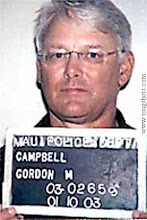
Chief Justice Allan Lutfy, of Canada's Federal Court, has rejected the pleas of the Attorney General's of the Governments of Canada and British Columbia and of the five law firms that represent a number of the other Defendants in the WaterWarCrimes lawsuit by British Columbia lawyer, John Carten, and his colleague, Karen Gibbs.
Over the objections of the Attorney General's of the Governments of Canada and British Columbia and of the five law firms, Chief Justice Lutfy has ordered a public hearing in Vancouver on April 20, 2010.
The case involves a claim that the Governments of Canada and British Columbia conspired to cause harm to the Plaintiffs because they had been assisting Sun Belt Water Inc., an American corporation, that was claiming access to Canada's fresh water under NAFTA and the Free Trade Agreement or, alternatively, $10.5 billion in damages - a figure that some consider should be raised given the water crisis facing California other American states and northern Mexico.
The case involves the incidental claim of a judicial conspiracy by a "mafia" operating inside the Canadian judiciary, a matter that may not be resolved because nine of the politically appointed judges involved have suddenly died as the case moved forward (Canadian judges are directly appointed by politicians). The circumstances of the sudden deaths of the judges suggests murder by insiders to prevent them from giving evidence.
Over the objections of the Attorney General's of the Governments of Canada and British Columbia and of the five law firms, Chief Justice Lutfy has ordered a public hearing in Vancouver on April 20, 2010.
The case involves a claim that the Governments of Canada and British Columbia conspired to cause harm to the Plaintiffs because they had been assisting Sun Belt Water Inc., an American corporation, that was claiming access to Canada's fresh water under NAFTA and the Free Trade Agreement or, alternatively, $10.5 billion in damages - a figure that some consider should be raised given the water crisis facing California other American states and northern Mexico.
The case involves the incidental claim of a judicial conspiracy by a "mafia" operating inside the Canadian judiciary, a matter that may not be resolved because nine of the politically appointed judges involved have suddenly died as the case moved forward (Canadian judges are directly appointed by politicians). The circumstances of the sudden deaths of the judges suggests murder by insiders to prevent them from giving evidence.




























No comments:
Post a Comment